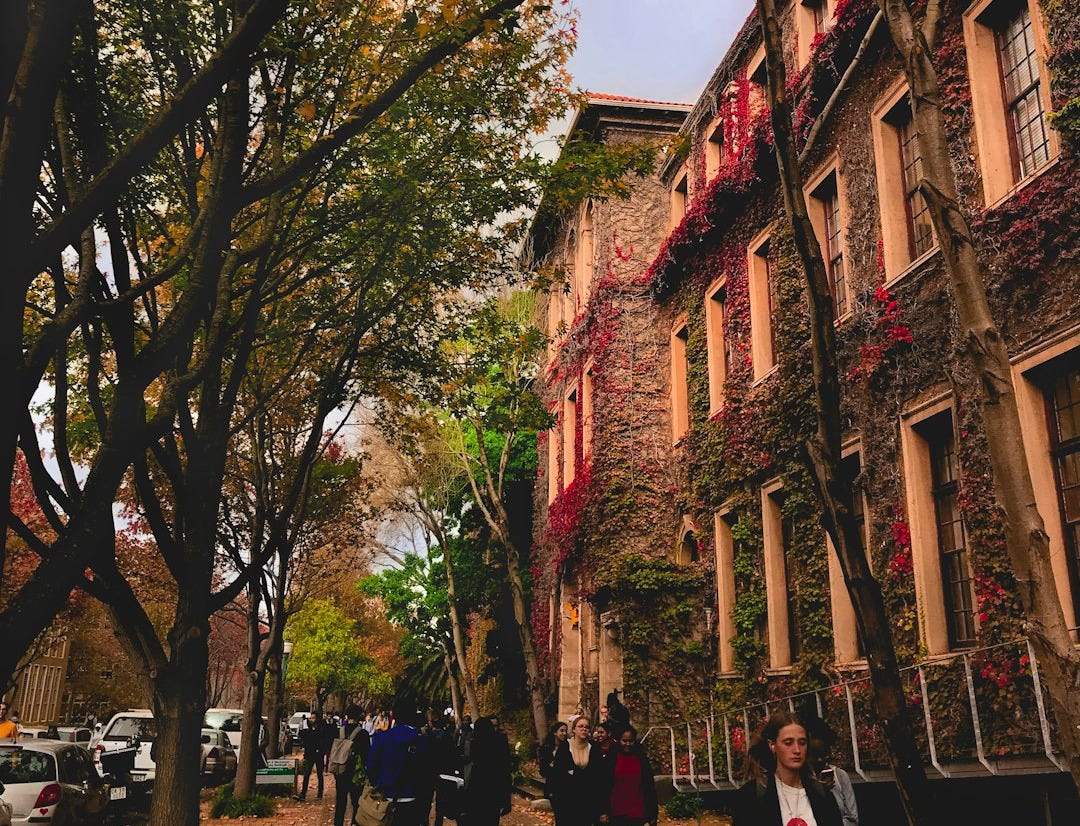Over 180 UCT Alumni Call to Prioritise University’s Financial Future
It is critical that the UCT Council heeds the Vice Chancellor's explicit warning that the Gaza Conflict Resolutions are likely to trigger repercussions from the United States...

Written by: J Coscia
I am among more than 180 UCT alumni who have directed personal letters urging the UCT Council to address severe financial risks facing the institution. The letters, sent to UCT Vice-Chancellor Professor Mosa Moshabela, UCT Council Chairperson Adv Norman Arendse SC and Chair of UCT Alumni Advisory Board Diana Yach, highlight grave concerns over confirmed funding cuts worth R750 million and potential US federal funding losses tied to the university’s Gaza Conflict Resolutions of June 2024.
The correspondence underscores the urgent need for the UCT Council to heed Professor Moshabela’s warnings, particularly regarding the threat to R2.75 billion in US-funded research programmes.
Below is the full text of my letter, which I am now sharing in the public domain to ensure accountability and broader awareness, in particular to members of the UCT Council who may not have been made privy to the influx of letters to its leadership:
I address this letter to Vice-Chancellor (VC) Professor Mosa Moshabela to express my support for his urgent efforts to save UCT.
I am deeply concerned about the financial consequences that VC Professor Moshabela brought to the attention of the UCT Council amounting to confirmed funding cuts worth R750 million as well as the potential US federal funding cuts.
I echo VC Professor Moshabela’s assessment of the magnitude of the risk of jeopardizing grants or sub-awards from US Federal Agency funding for over 140 research programmes at UCT with a combined total grant period value of R2.75 billion (with a current value of R660 million for 2025).
In my view it is critical that the UCT Council heeds the Vice Chancellor's explicit warning that the Gaza Conflict Resolutions are likely to trigger repercussions from the United States targeted specifically at UCT.
It is not to the benefit of UCT leadership to have to function in the adverse fundraising environment created by these same resolutions.
I believe that averting this risk, and mitigating the catastrophic damage that would be done by US funding cuts, should be the top priority of the UCT Council.
I call on the UCT Council to hear the pleas of the Vice Chancellor, with the support of other members of the university executive, to provide him with all the necessary tools to mitigate these grave risks to UCT.
I join the Vice Chancellor in urging the UCT Council to:
“modify the Gaza Conflict Senate resolutions to prevent sanctions from impacting individual academics, make explicit UCT's opposition to antisemitism and signal UCT's commitment to academic freedom.”
I agree with VC Moshabela’s proposed mitigation measures.
I am therefore deeply concerned that the Vice Chancellor’s plea to Council was thwarted by the Chair of Council, as well as some others who were entirely resistant to facing reality when they voted against rescinding these disastrous resolutions.
It is extraordinary that the Chair of Council, as well as members of the previous EXCO of Council, whose actions have been impugned in a pending legal application, continue to place personal interest and ideology ahead of saving UCT.
I contend that those members of the UCT Council who voted against the rescission of the Gaza Conflict Resolutions are not exercising their fiduciary duties to act in the best interests of UCT.
They are failing UCT.
I support VC Professor Moshabela in his actions to #saveUCT.
In sharing this publicly, I aim to ensure the UCT Council’s full engagement with stakeholders in the interests of whom they are supposed to be acting.
The future of UCT’s international engagement, academic freedom and financial stability depends on it.
J Coscia is an alumnus of the University of Cape Town (UCT), holding a BA English and Sociology and graduating in 1992.



Your compassion is weaponised against you. It's a tactic of war to operate your forces from within civilian populations, and terrorists need to learn that this form of warfare will not be successful. Israel is taking that hit for the whole civilized world in fighting a war on those terms. You, sir, are what is called a useful idiot. I'm sorry that it's an offensive term, but it is accurate.
Thank you J. Coscia.